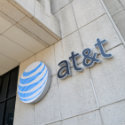But the main point of its letter to the FCC is to call out Sprint and T-Mobile for deploying WiFi calling in violation of the Commission's TTY requirements.

AT&T has sent a letter petitioning the FCC to grant it a waiver to deploy WiFi calling without support for TTY for the hearing impaired. The real thrust of its letter, however, was to call out its competitors, Sprint and T-Mobile, for launching the service without obtaining such a waiver.
AT&T Inc. (NYSE: T) sent the letter last week, attributing its delay in launching WiFi calling, or voice-over-WiFi (VoWiFi), to the Federal Communications Commission (FCC) 's failure to approve its waiver. In the US, all voice calling services are required to support TTY, or teletypewriter, devices for the hearing impaired that don't generally work on IP-based networks like WiFi. (See AT&T to Launch WiFi Calling in 2015.)
T-Mobile US Inc. and Sprint Corp. (NYSE: S), which both have been offering WiFi calling for a while now -- seven years for T-Mobile -- launched it without support for TTY and without a waiver, AT&T claims. (See WiFi Calling Catches on Globally, T-Mobile Turns Up VoLTE-to-WiFi Handoff and Sprint Selects Kineto for WiFi Calling.)
For more on WiFi calling in the US, visit the mobile content section here on Light Reading.
Trying to do things on the straight and narrow, AT&T has instead tested and proved the validity of an alternative to TTY, real-time text (RTT), for disabled users. It had hoped to launch WiFi calling concurrent with Apple Inc. (Nasdaq: AAPL)'s iOS 9 launch, but the FCC didn't issue a public notice on its filing in a timely manner and then instituted a 45-day comment period. (See Apple iPhones Add More LTE & Ways to Pay.)
"I do not reference this delay to denigrate the Staff's efforts here, but simply to observe that the processes for keeping pace with technology transitions at the Commission are slow, particularly here where coordination amongst three Bureaus/Departments is involved," James Cicconi, AT&T senior executive vice president of external and legislative affairs, said in the letter.
He later added, "Because the Commission has not granted waiver petition, we are not in a position to provide Wi-Fi calling services to our customers even while our competitors provide those services in defiance of the Commission's rules."
AT&T is concerned about its inability to compete on the WiFi calling front, but also about the larger issue of perceived asymmetry on the application of federal regulations on it versus its competitors. Cicconi also suggests that the FCC may be waiting in order to apply a TTY waiver to the entire industry, rather than just for AT&T, which is not what the carrier was requesting.
Sprint did not return an email soliciting its feedback on AT&T's letter, but a T-Mobile spokesman pointed out that it's in full compliance with the FCC rules and supports TTY, although he did not respond when asked specifically if WiFi calling supports TTY. "We have no knowledge of the network configuration or planned service offerings that drove AT&T to seek the requested waiver," the T-Mobile spokesman said.
— Sarah Thomas, 

 , Editorial Operations Director, Light Reading
, Editorial Operations Director, Light Reading
About the Author(s)
You May Also Like










